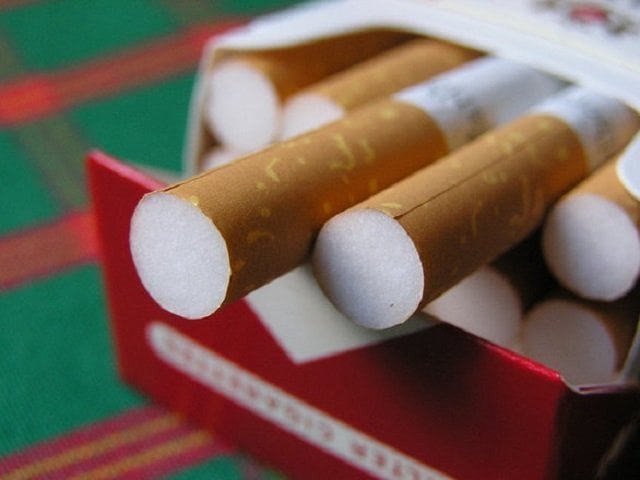Number of unlicensed cigarette brands grows
Govt may miss target of collecting Rs240b in revenue from tobacco sector

In violation of the law and the prime minister’s instructions to launch an effective crackdown, more than 125 unlicensed and non-duty-paid cigarette brands are being sold in the market, which have caused massive revenue leakages.
As a result, the government’s tax revenue from the major registered brands is expected to remain below the target of Rs240 billion in the current fiscal year by at least Rs60 billion, according to industry people and sources in the Federal Board of Revenue (FBR).
In February this year, the government increased the federal excise duty (FED) by an average of 150% on hopes of collecting Rs240 billion from the tobacco sector. However, instead of any major increase, the collection is falling far short of the target due to the rise in illicit trade.
Section 40E of the Sales Tax Act says that the manufacturers of specified goods shall be required to obtain brand licence for each brand or stock keeping unit (SKU) in such a manner as may be prescribed by the FBR.
The law further states that any specified brand and stock to be sold without obtaining a licence from the FBR shall be deemed counterfeit goods and liable to outright confiscation and destruction.
A recent survey conducted by Ipsos, a Europe-based surveyor, found that about 128 cigarette brands were being sold without the government’s track and trace stamps and their names indicated that these were also not registered with the tax authorities under Section 40E.
The data collected from 10 districts of Pakistan showed that only 26 brands bearing the track and trace stamps were sold by the outlets.
The huge number of unstamped brands indicates the complete failure on part of the FBR that has remained unable to improve the situation despite enforcing the track and trace system.
The FBR’s focus is only on the already registered manufacturers, as it lacks the capacity to check the smuggled brands being sold in the market. According to the survey, in rural areas, 41% tax-evaded and 7% smuggled brands were being sold.
At a closed-door meeting recently, Prime Minister Shehbaz Sharif took exception to the growing sales of smuggled and non-duty-paid cigarette brands, which made the FED increase ineffective in controlling smoking. The premier put the FBR management on notice, if it failed to improve the situation by July 15, said the sources.
In the budget, the government increased the FED on the less expensive brands by Rs3,000 to Rs5,050 per 1,000 sticks and by Rs10,000 for expensive brands to Rs16,500. This has resulted in an increase of 146% to 154%.
The increase was expected to curb the growing smoking trend but the desired results could not be achieved due to the shifting of smokers from legal to smuggled brands.
Before the increase in FED, the most popular cigarette brand of Pakistan Tobacco Company (PTC) had a 9% share in the total sales value and 32% share in the total revenue generated from the tier-I category. After the shifting of customers, the brand’s share in value went down to 6% and its share in revenue fell to 30%.
“If the government reduces the tier-I FED by 30% to Rs11,550 and the tier-2 FED to around Rs4,000, the industry can give Rs360 billion revenue to the FBR in the next fiscal year,” said an official of Pakistan Tobacco.
Published in The Express Tribune, June 20th, 2023.
Like Business on Facebook, follow @TribuneBiz on Twitter to stay informed and join in the conversation.


















COMMENTS
Comments are moderated and generally will be posted if they are on-topic and not abusive.
For more information, please see our Comments FAQ